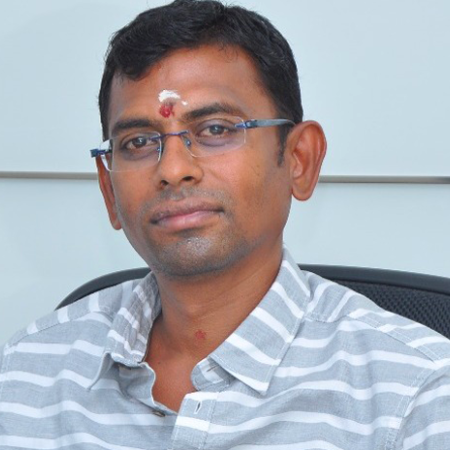March 25, 2021
The international commodities broker says India is a long way from attaining pulse self-sufficiency.


India’s pulse production grew substantially over the past five years and there is an emerging view that the county is heading towards pulse self-sufficiency. But not everyone, particularly in the trade, shares this optimism. Balasubramanian Mani, founder of Nava Star, a leading international commodity brokerage firm, says it is too early for India to celebrate self-sufficiency in pulses.
“One drought year can change the scenario because India’s pulses are produced largely in rain-fed areas. We have been lucky to have had a good monsoon the past five years,” Mani points out.
The country’s pulse output rose to 24 million MT in 2020-21 from 14 million MT in 2014-15. The government, to protect farmers’ interests and secure price stability, restricted imports through a system of duty and quotas starting in 2017.
Mani, who has been in the business for nearly two decades, feels that policies based on misplaced optimism hurt the country’s own international trade. Sudden policy decisions and short-term measures upset the plans of both domestic and overseas buyers and sellers.
“The trade is not opposed to any measure supporting farmers. What we need is transparency and time,” says Mani, who himself suffered losses in 2017, following unanticipated curbs on pulse imports.
Mani, based in the southern state of Tamil Nadu, started his business in early 2000 buying pulses and other commodities directly from farmers and supplying them to processing mills. He became involved in the international pulse trade when he set up Nava Star in 2007 in Virudhnagar. Today the company deals with buyers and sellers in several countries. The name Nava Star, he says, denotes the nine grains (pulses and cereals) offered to nine grahas (planets) by Hindus on auspicious occasions.
Mani feels import restrictions hurt consumers in the south the most as they are forced to pay higher prices for poor quality goods.
“It is cheaper to import pulses from Myanmar than to get them by road from Madhya Pradesh or Rajasthan,” he notes.
In this interview with the GPC, Mani also discusses how small farmers are left out of the state guaranteed MSP and why demand for pulses is bound to increase in India.
Mani: There is nothing wrong with the policy per se, which is based on the basic assumption that when we produce enough to meet the demand, imports could distort the local price and hurt farmers’ interests. There are two issues here. One, are we producing enough to meet the growing demand? Two, can we sustain the level of production if the weather fails? One drought year can alter the scenario completely. We are lucky to have had good monsoons in the past four to five years. In India, pulses are produced largely in rain-fed areas. So, if the weather fails, all our calculations go awry. The demand for pulses is also bound to increase as per capita consumption of pulses is one of the lowest in India. There has been a move to distribute pulses through the public distribution system. Also, of late, there is an increasing thrust on the use of plant-based protein.
Mani: No doubt. Our pulse production increased substantially over the past four to five years, but we are not self-sufficient. We still need imports. The view that the country is all set to achieve self sufficiency is based on misplaced optimism. Policies based on such views can only hurt our own international trade in the long term. In fact, some countries, displeased by our policies, have complained to the WTO. The problem is that in a bad year, we may not have enough of a supply at reasonable prices. I am not arguing for free imports. But there should be a clear and transparent policy.
Mani: The main issue is the way the policies are announced and implemented. Sudden decisions and short-term measures hurt buyers and sellers in India and abroad. An unanticipated ban on imports leads to the cancellation of contracts. Buyers default and sellers suffer losses. As an international broker, I myself suffered losses in 2017. The buyers defaulted, but I had to honor my commitments to the sellers. Additionally, import permits are issued months after quotas are announced. Because of the delay, quotas remain unutilized. There could be a shortage of the commodity and the price goes up, but farmers seldom get the benefit. The end result: the policy fails to meet its objective and consumers and the trade are affected.
Mani: Yes, famers benefit from higher MSPs. The government has been increasing MSPs to please them. But they are mostly wheat and rice producers. In India, pulses are produced largely by small farmers and most of them sell their goods immediately after the harvest to the local mandis when prices are low. Even if the MSP is announced in advance, the government procurement agencies start buying late. So only those who can afford to hold their produce benefit. Sometimes the agencies release their stocks in the market just before the harvest, depressing prices. Often, market prices of pulses rule below MSP.
But I must admit that the area under pulse production has increased over the years following various schemes announced by the government, including higher MSPs.
Mani: As you know, prices depend on various factors, apart from demand and supply. Actual rabi output could be lower than expected due to lower yields because of changes in the weather. Desi chickpea prices, which were at Rs 4300 per 100 kg before NAFED started buying, are now at Rs 5000. The price might move up to Rs 5500 during the coming months. For kabuli chana the market seems to be getting bullish as well. Lentil prices have gone up following the increase in the import duty.
Mani: The south is a major market for pulses-- a daily staple for both vegetarian and non-vegetarian consumers. Traditionally, Tamil Nadu had several pulse processing units. Once, Virudhnagar alone had around 300 units. Now their number has come down to about 70. Ever since imports were restricted in 2017, these units were facing a shortage of good quality pulses. Goods coming from the north are expensive and lack consistency in quality. You know, for the south, it is cheaper to import pulses from Myanmar rather than getting them by road from Madhya Pradesh or Rajasthan. Over a period of time, many of these units were forced to shutter. Trade associations have made several petitions to the government, but to no avail.
Mani: We went through a rollercoaster following the restrictions on pulse imports. But we are now stable and focusing on markets in neighboring countries for chickpeas and lentils. In the future we want to focus on supplying processed pulses to the international market.
Mani: Nava Star denotes nine grains (pulses and cereals) offered to nine grahas (planets) on auspicious occasions by Hindus. These grains are called Nava Dhaanya in Sanskrit. According to Ayurveda, these grains are beneficial to boosting immunity. Interestingly, when COVID-19 broke out, many people in the south used to eat kanji (a kind of soup) made out of these grains.
Mani: I joined the GPC in 2008, when it was known as CICILS. The annual meeting organized by the GPC helped me grow my business as it gave me the opportunity to meet buyers and sellers from different countries.
READ THE FULL ARTICLE
Disclaimer: The opinions or views expressed in this publication are those of the authors or quoted persons. They do not purport to reflect the opinions or views of the Global Pulse Confederation or its members.